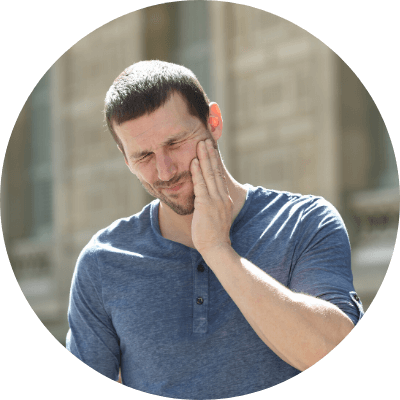What Causes Teeth Grinding?
What Causes Teeth Grinding?
Hi, my name is Dr. Elly, I’m one of the dentists at Dental House Group, as well as one of the principal dentists of Gisborne Dental House. Yesterday a new patient Sandra from Gisborne came to see us. She noticed her teeth are getting shorter over time as a result of teeth grinding over many years, and she was looking for a way to stop the deterioration, and possibly lengthen them to improve her smile. She asked me, what causes teeth grinding? Since tooth grinding is such a common issue, I thought I’ll make a quick video sharing with you what I shared with her.
Firstly, our teeth will naturally grind against each other as we chew food, and as a result, they will wear down as we age. However, teeth grinding outside our normal chewing patterns can be a serious issue, the most common form being nocturnal bruxism, which is when the teeth grind excessively against each other during sleep. This condition can affect people of all ages, and it’s commonly seen in the younger generation.

Most people are unaware that they grind their teeth, and only learn that they do if they are heard. This grinding of teeth at night can exhibit a very loud noise. Other symptoms of teeth grinding include jaw tenderness, earaches, tooth pain, neck pain, tooth sensitivity and excessive wear on the teeth. Associated jaw and neck pain is usually worse in the morning.
Teeth grinding and jaw clenching is often related to stress or anxiety, and has a genetic component where family members are also found to grind their teeth. A link has also been found between obstructive sleep apnea and sleep bruxism. Other factors that may relate to bruxism include improper bite, reduced number of teeth, alcohol, smoking, caffeine, depression and snoring.
So how is sleep bruxism treated? The most common form of treatment is a custom made night guard or occlusal splint, which is worn at night time to protect the teeth and help prevent the excessive jaw movements. In order to have this night guard made, a clinician will scan your teeth with an intraoral camera, and send this to a dental lab to have the custom night guard 3D printed for a perfect fit. Other treatments can include physiotherapy, muscle relaxants and for severe cases, a referral to a TMJ specialist.
I hope you found this video useful. If you have any of the above symptoms or wish to know more about teeth grinding, we are here to help. Simply call 1800GENTLE, direct message us on social media, or complete the enquiry form on our website, and our friendly team will be in touch to organise your consultation. See you in the next video.
Services we mentioned:
Related Articles
Can I Have Veneers if My Teeth Are Weak?
Dental veneers are commonly used to help strengthen the structure of a weak tooth, but it depends on why it is weak.
Is the Veneer Procedure Painful?
With that being said, if you would like to know if the procedure is painful, and the answer is no. While some teeth may feel…
How Much Do Braces Cost
Hi, this is Dr Lyle, one of the principal dentists from Dental House Group. Our patient Sarah from Gisborne and her children have been comi…
What Are Veneers?
Hi, I’m Dr Thea, one of the gentle dentists here at Dental House Group in Melbourne. Yesterday, I had a new local patient named Cindy from…














